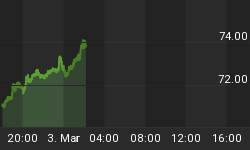Trump’s ultimatum to TikTok--sell out to an American company or get banned--is now being met by a salvo from the Beijing, which quietly watched from the sidelines and then launched its own countermove that could make it very difficult for prospective buyers Microsoft and WalMart to acquire the wildly popular social media app.
Last month, Trump threatened to ban TikTok from operating in the United States, citing national security concerns, and now the app has until September 15 only to find a U.S. buyer.
To that end, Microsoft and Walmart have confirmed a joint bid to buy TikTok's service in a deal that could be worth up to $30 billion. Several other American companies have also been reported to show interest such as Oracle and Twitter; but for now, Microsoft seems to be the closest to closing a deal.
And that’s the moment when Beijing has chosen to throw a wrench in any plans.
With the sale deadline approaching, the Chinese government has passed a new rule requiring its greenlight. On Friday, the Chinese Ministry of Commerce added some two dozen new categories of technology that require its approval before they can be exported. They reportedly include artificial-intelligence technology, which happens to play a key role in TikTok.
To wit: TikTok analyzes user behavior and recommends videos they would like, thus feeding the addiction--all through AI technology. In accordance with Beijing’s new rules, ByteDance would not be able to deliver the user feed algorithm that TikTok relies on without a license from the authorities. That would make TikTok practically useless and not attractive to Microsoft--or WalMart, whose involvement in this remains odd and unclear.
As a result of the Chinese move, Microsoft and WalMart shares have shed some recent gains.
And while Beijing isn’t specifically singling out TikTok with its new rules, it’s a very thinly veiled attempt to stop the sale and thwart Trump.
"This is clearly directed at slowing down ByteDance's deal negotiations in this game of high-stakes poker," wrote Wedbush analyst Dan Ives in a note to clients, reported by MarketWatch.
"With TikTok's key algorithm at play, ByteDance/TikTok will likely now need to go through a licensing procedure around the need to transfer software code from China to the US (likely Redmond)," Ives wrote.
It’s not clear now whose court this ball is now in.
For Trump, banning TikTok is a risky move in an election season. Even though Washington’s economic war with China is supported by many Americans, messing with a key form of entertainment is not.
Data shows that one out of every three Americans is already addicted to the app, and a large number of those TikTok junkies are eligible to vote.
Now, the Chinese move is almost sure to delay TikTok’s sale to an American buyer, with some speculating that a deal might get pushed until after presidential elections, at which point anything could happen.
TikTok’s parent company ByteDance said in a statement the company was aware of the new restrictions and would "strictly comply with" the Chinese regulations on technology exports.
The move is also ruining Bytedance’s attempt to prove to other countries that it is distancing itself from the Chinese government. Now, the TikTok parent company has to concede that it is beholden to Beijing.
Besides selling TikTok to a U.S. buyer, ByteDance has implemented several measures to further protect itself from becoming the bullseye in a US-China battle. For starters, it is setting up U.S. headquarters--like in California or New York, where it already has offices.
In mid-March, the company said it would stop using China-based moderators to monitor overseas content.
That same month, ByteDance said it would open a new facility in California, called the “transparency center”, which would allow outside observers to view how teams at the company moderate content. Also, in May installed Kevin Mayer, Disney’s head of streaming, as its new CEO hoping for a reputational boost.
Since last year, U.S. lawmakers have expressed concern that China's internet laws force companies in the country to cooperate with its Chinese Communist Party. They also questioned the company’s data collection practices to determine whether the Chinese government has any say in what content Americans see on the app.
Several U.S. government agencies, including nearly all branches of the military, have barred employees from downloading or using the app.
As a result, the U.S. government has launched a national security review of TikTok owner Beijing ByteDance’s $1 billion acquisition of U.S. social media app Musical.ly, which is retroactive because it took place two years ago.
TikTok has denied all allegations, and last week sued the Trump administration, stating that the authorities did not give the company a fair chance to defend itself from accusations that it poses a national security risk.
By Fred Dunkley for Safehaven.com
More Top Reads From Safehaven.com:
















